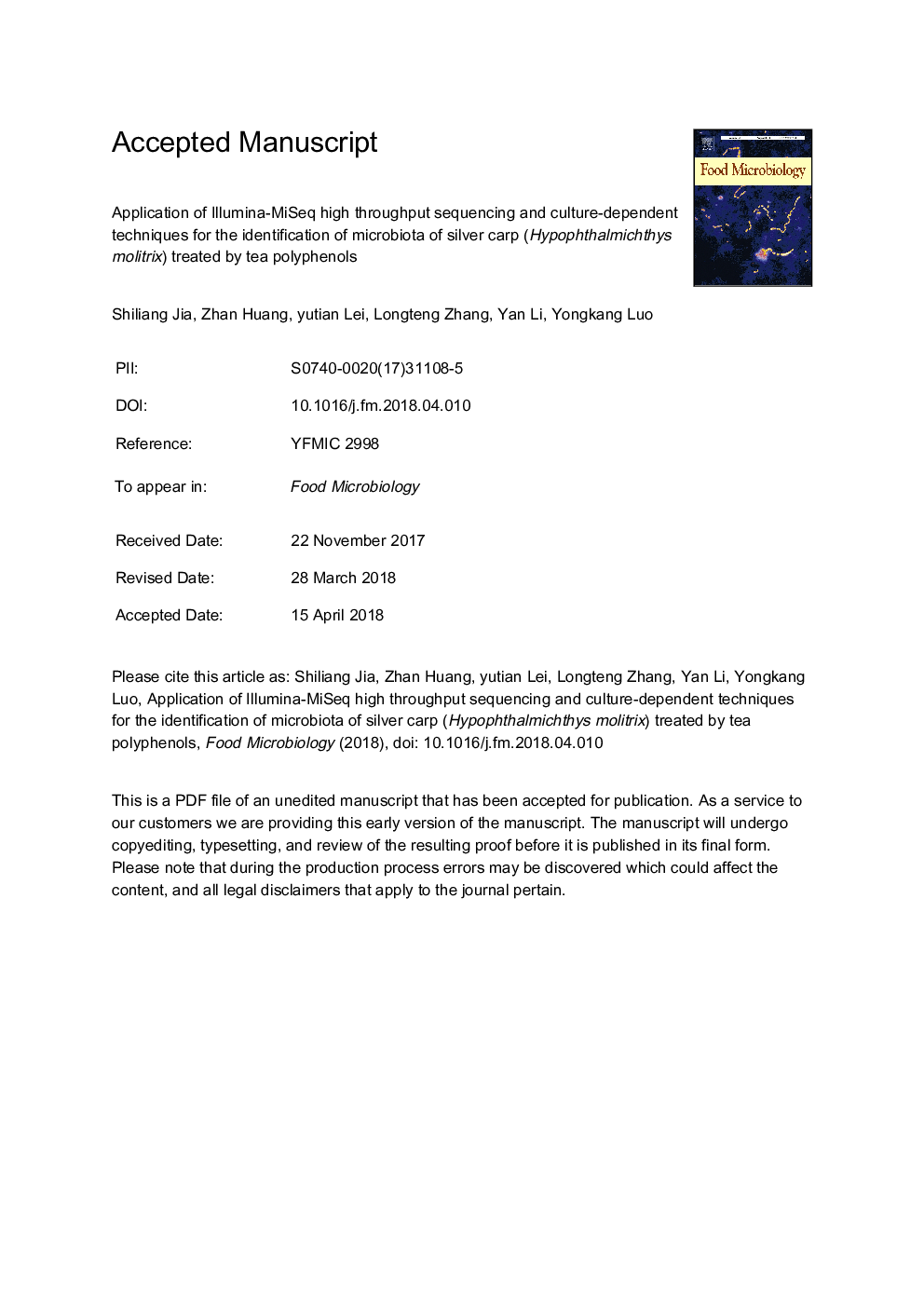| Article ID | Journal | Published Year | Pages | File Type |
|---|---|---|---|---|
| 8843415 | Food Microbiology | 2018 | 39 Pages |
Abstract
This study evaluated the antimicrobial effects of tea polyphenols (TP) on changes in microbiota composition and quality attributes in silver carp fillets stored at 4â¯Â°C. During storage, TP treatment was found to be effective in enhancing sensory quality, inhibiting microbial growth, and attenuating chemical quality deterioration. Meanwhile, the composition of microbiota of silver carp fillets was investigated using culture-dependent and culture-independent methods. Initially, compared to the control, TP obviously decreased the relative abundance of Aeromonas, which allowed Acinetobacter and Methylobacterium to become the dominant microbiota in TP treated fillets on day 0. The controls, 0.5% TP-treated fillets, and 1% TP-treated fillets were rejected by sensory panelists on days 8, 12, and 12, respectively. At the time of sensory rejection, Aeromonas, followed by Acinetobacter and Pseudomonas, became the main spoilers in the control on day 8. However, TP treatment inhibited the growth of Aeromonas and Acinetobacter significantly. Consequently, Aeromonas followed by Pseudomonas and Shewanella became the predominant microbiota in all TP-treated fillets on day 12. Therefore, TP improved the quality of fillets during chilled storage, which was mainly due to their modulating effects on microbiota that resulted in the change in pattern and process of spoilage in fillets.
Related Topics
Life Sciences
Agricultural and Biological Sciences
Food Science
Authors
Shiliang Jia, Zhan Huang, Yutian Lei, Longteng Zhang, Yan Li, Yongkang Luo,
